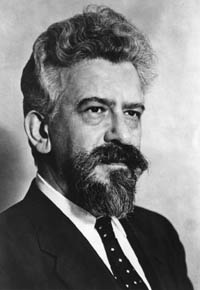“Some tacit assumptions of the theory of insufficiency remain problematic.”
Source: Who Is Man? (1965), Ch. 5<!-- Pathos, p. 91 -->
Context: Being is either open to, or dependent on, what is more than being, namely, the care for being, or it is a cul-de-sac, to be explained in terms of self-sufficiency. The weakness of the first possibility is in its reference to a mystery; the weakness of the second possibility is in its pretension to offer a rational explanation.
Nature, the sum of its laws, may be sufficient to explain in its own terms how facts behave within nature; it does not explain why they behave at all. Some tacit assumptions of the theory of insufficiency remain problematic.
